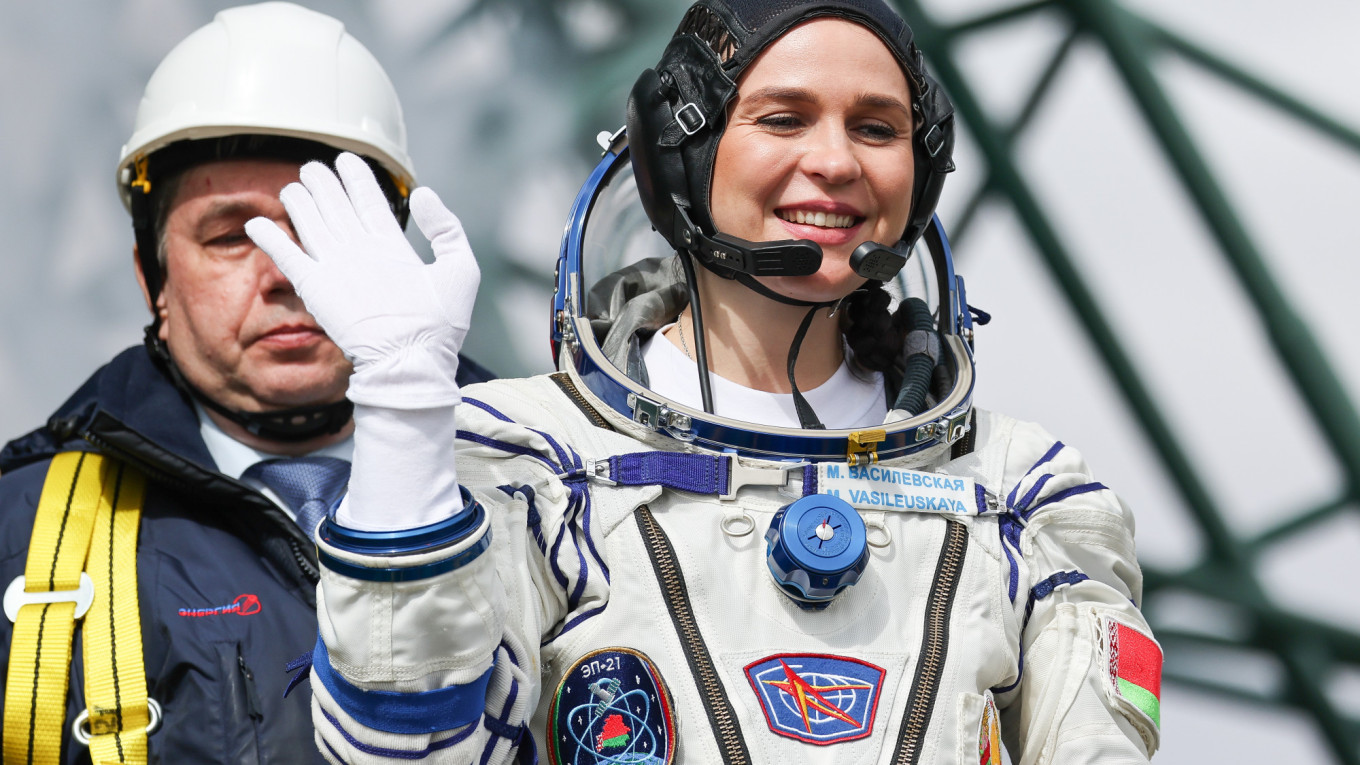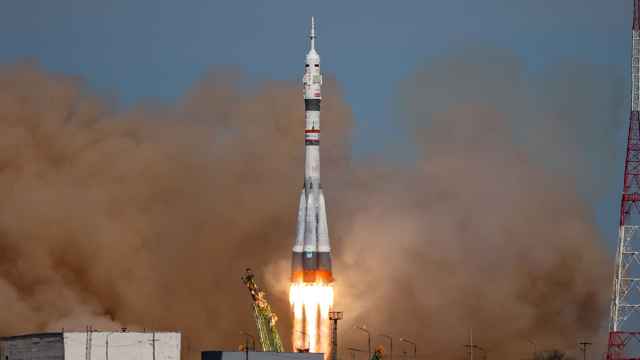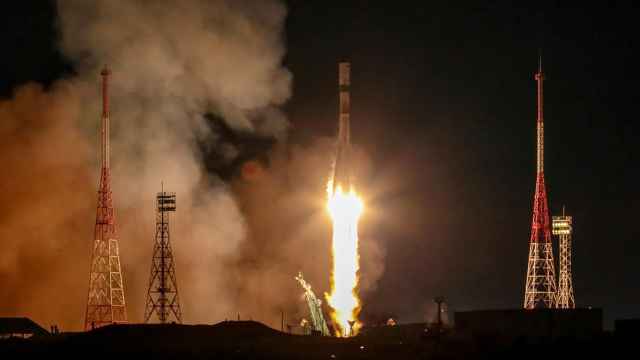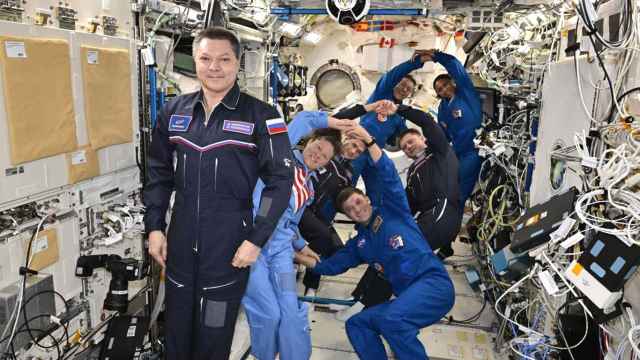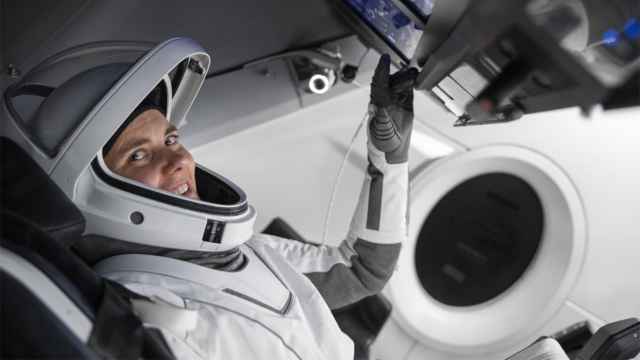Maryna Vasileuskaya, Belarus' first woman cosmonaut, was aboard a Russian Soyuz spacecraft that blasted off successfully on Saturday headed for the International Space Station, Moscow's Roscosmos space agency said.
"The Soyuz took off from Baikonur" in Kazakhstan at 12:36 GMT, a Roscosmos statement said, adding that the spacecraft went into orbit "as planned."
Initially programmed for Thursday, the take-off was delayed on the launchpad at the last moment in another high-profile setback for Russia's space program that has been hit by financial problems, scandal, corruption and failure.
Roscosmos chief Yury Borisov said a "voltage dip" had occurred in a chemical power source during the final pre-launch preparations.
But on Saturday the Soyuz MS-25 mission took off from the Baikonur space port without apparent problems and carrying three astronauts: experienced Russian cosmonaut Oleg Novitsky, Tracy Dyson from the United States and 33-year-old Vasileuskaya.
"Everything is fine on board," Novitsky said shortly after lift-off in a video broadcast by Roscosmos.
The Soyuz craft was due to dock on Monday at 15:10 GMT with the Russian segment of the International Space Station (ISS).
Moscow's once pioneering space program has faced multiple setbacks since it won the first leg of the space race more than 60 years ago.
The program has suffered since the collapse of the U.S.S.R., including with the loss of its first lunar probe in almost 50 years last August.
The Russian segment of the ISS also suffered three coolant leaks in under a year, spraying flakes of frozen coolant into space on multiple occasions in 2023.
Space is one of the final areas of U.S.-Russia cooperation amid an almost complete breakdown in relations between Moscow and Washington over the last two years.
But Russia has said it plans to ditch the ISS and build its own space station.
It previously said it would quit "after 2024," but the most recent position is that Russia will remain a participant until 2028.
For almost a decade, Russian Soyuz launches were the only way to ferry astronauts between Earth and the ISS, after NASA halted its Space Shuttle programme.
But the United States has now moved to using privately-built SpaceX rockets and capsules, ending Russia's monopoly on manned launches.
A Message from The Moscow Times:
Dear readers,
We are facing unprecedented challenges. Russia's Prosecutor General's Office has designated The Moscow Times as an "undesirable" organization, criminalizing our work and putting our staff at risk of prosecution. This follows our earlier unjust labeling as a "foreign agent."
These actions are direct attempts to silence independent journalism in Russia. The authorities claim our work "discredits the decisions of the Russian leadership." We see things differently: we strive to provide accurate, unbiased reporting on Russia.
We, the journalists of The Moscow Times, refuse to be silenced. But to continue our work, we need your help.
Your support, no matter how small, makes a world of difference. If you can, please support us monthly starting from just $2. It's quick to set up, and every contribution makes a significant impact.
By supporting The Moscow Times, you're defending open, independent journalism in the face of repression. Thank you for standing with us.
Remind me later.


